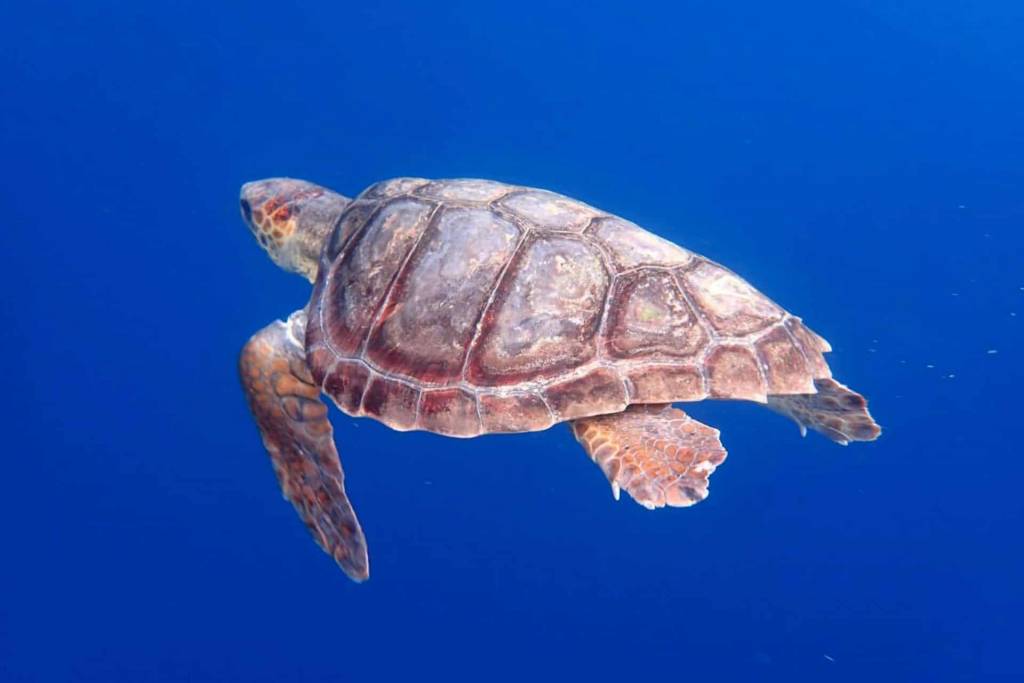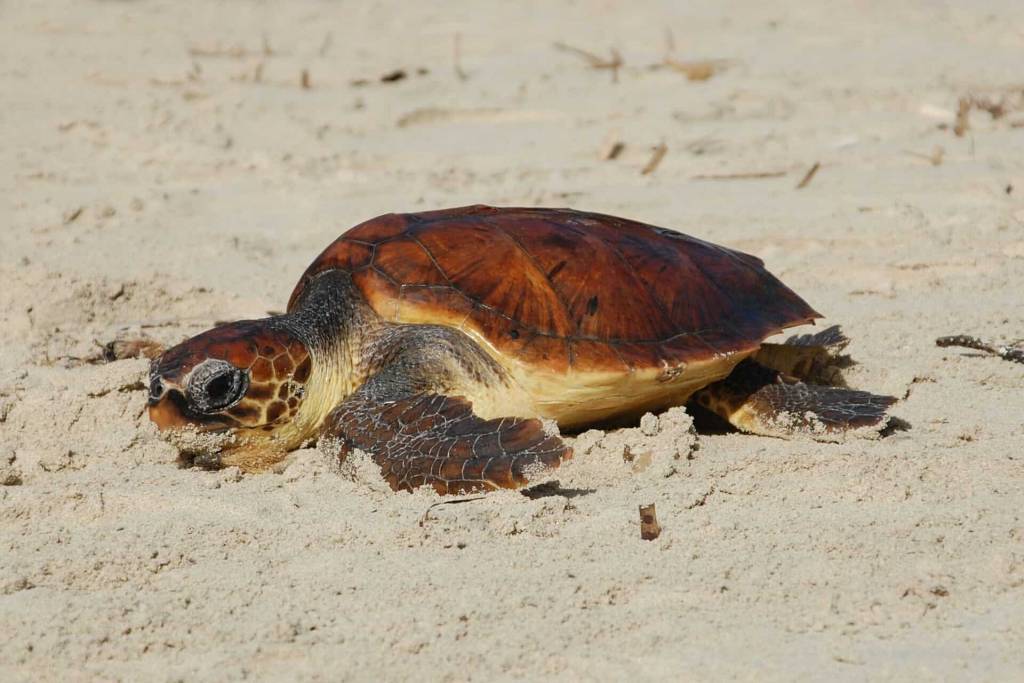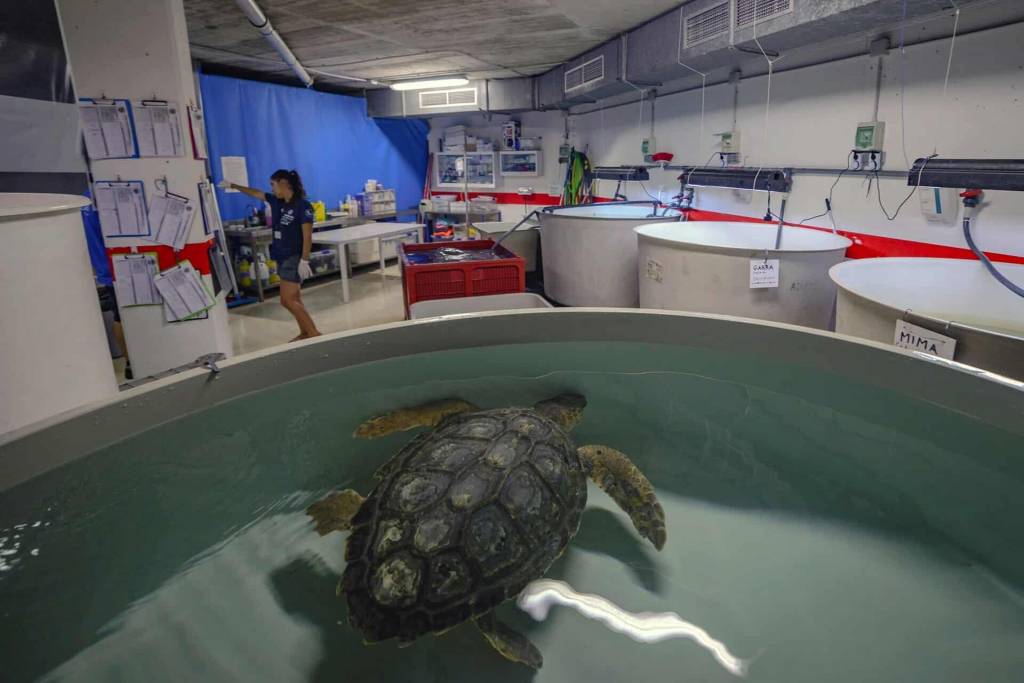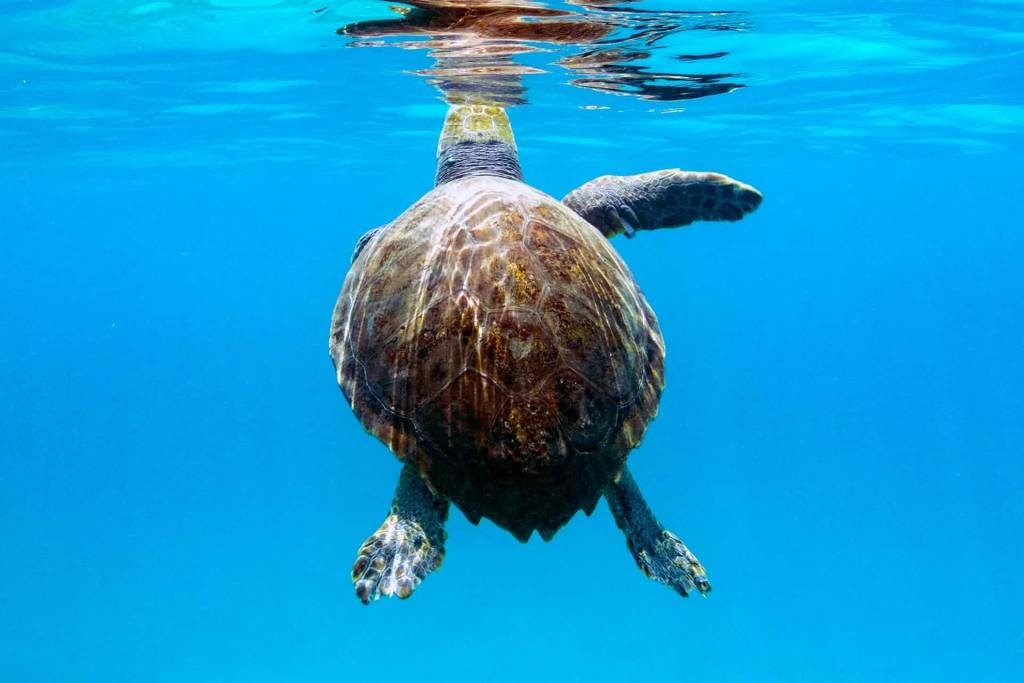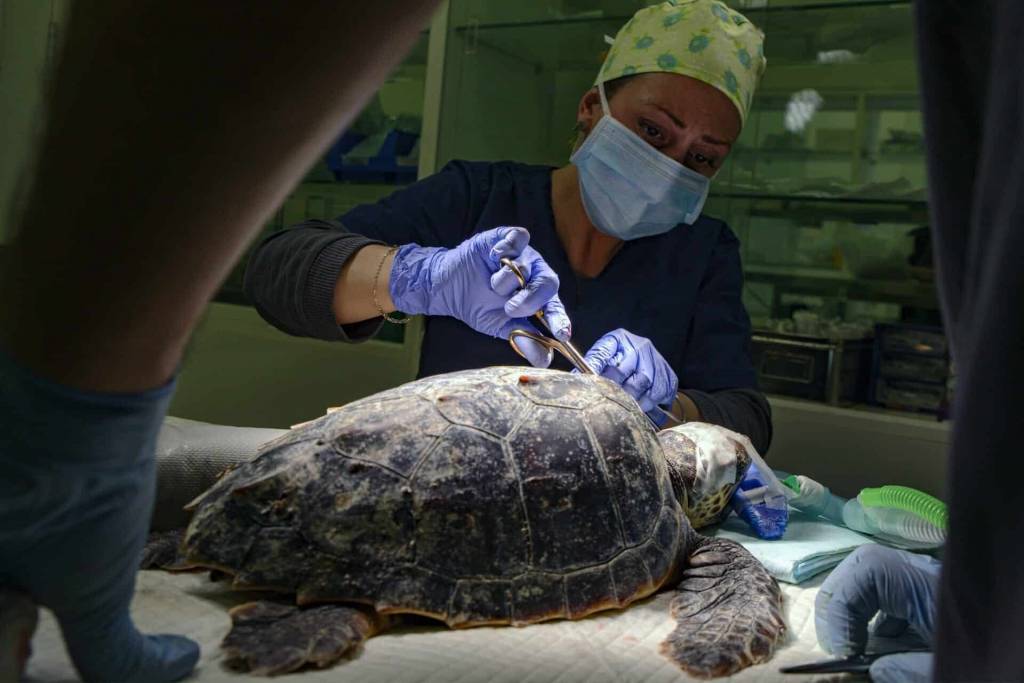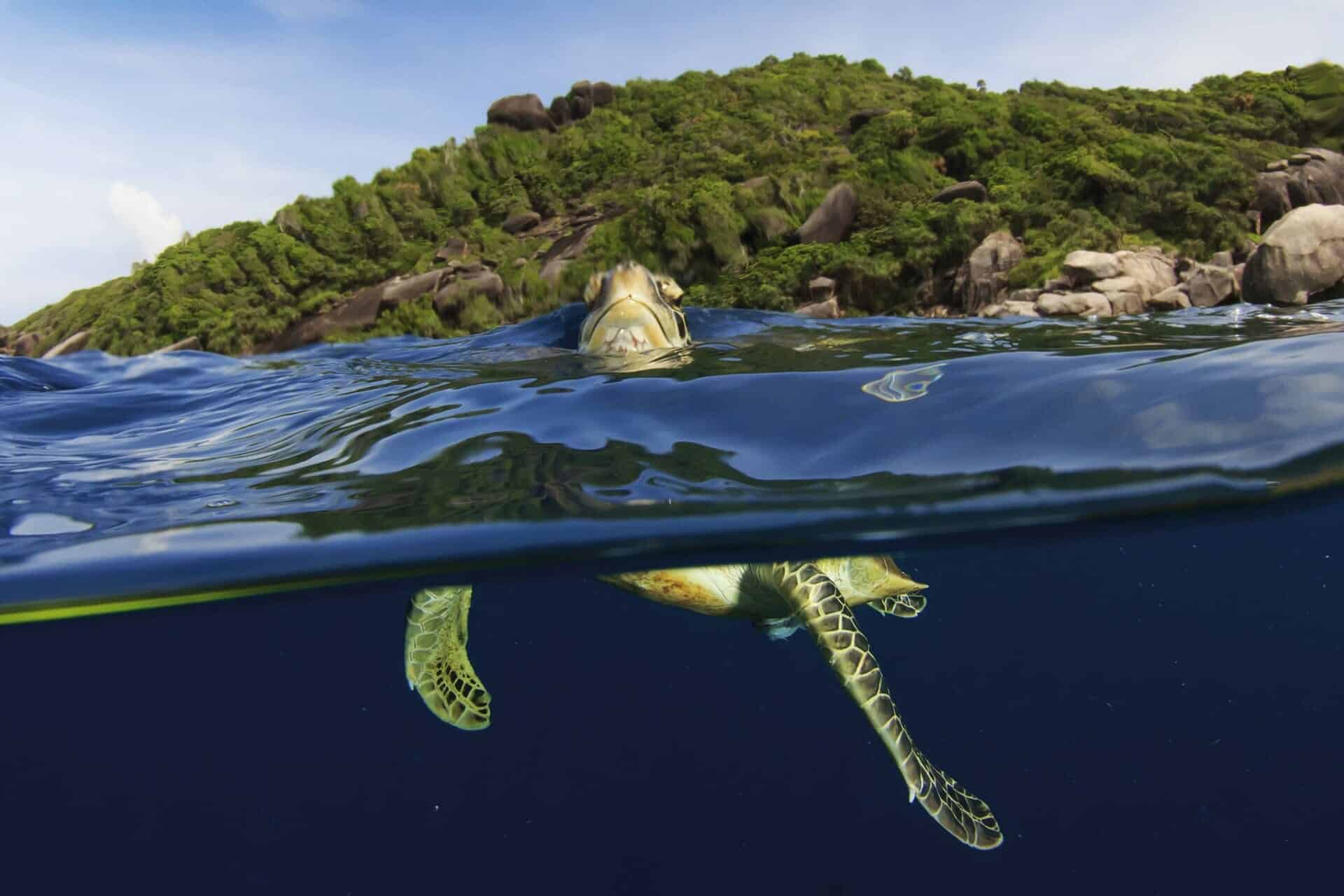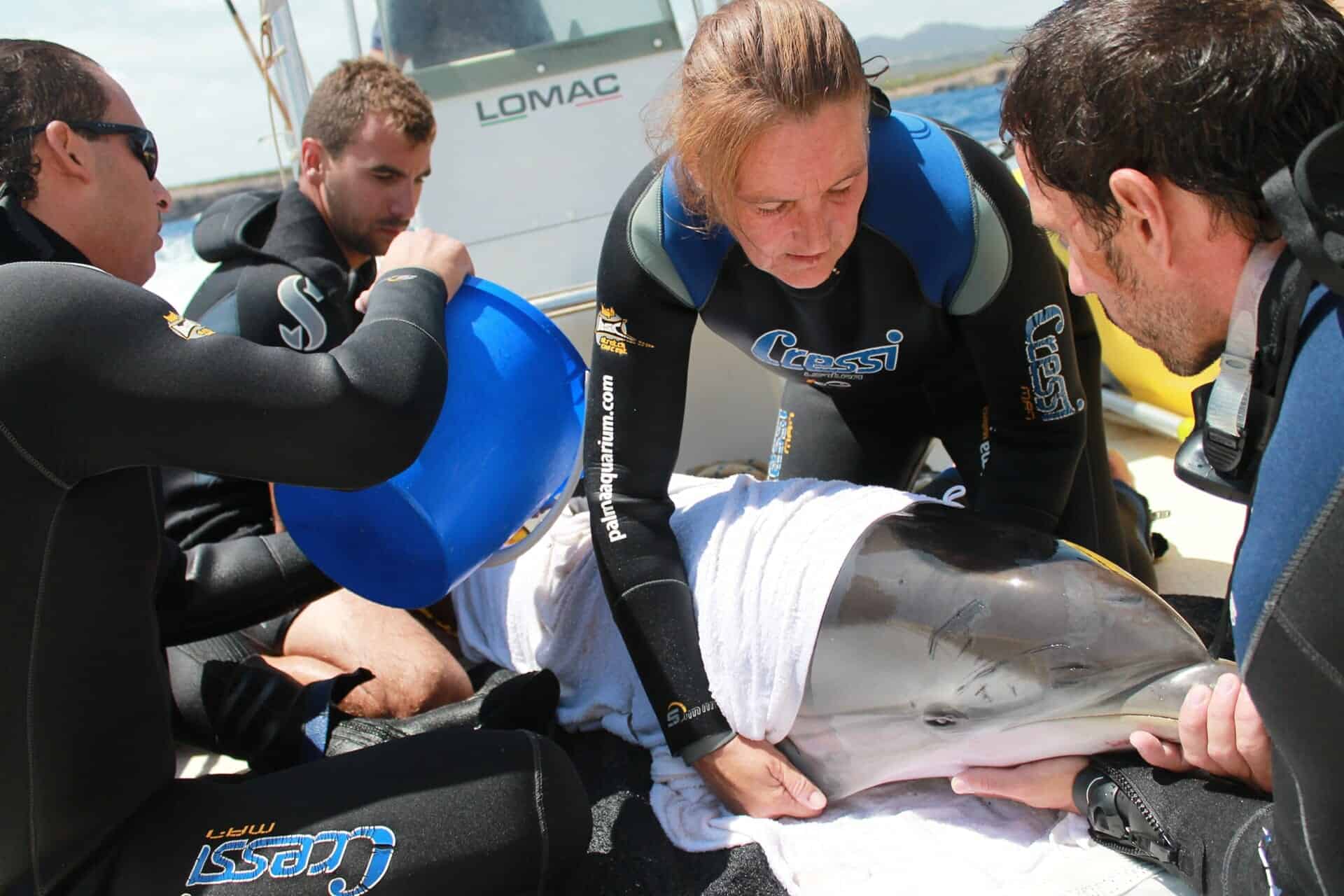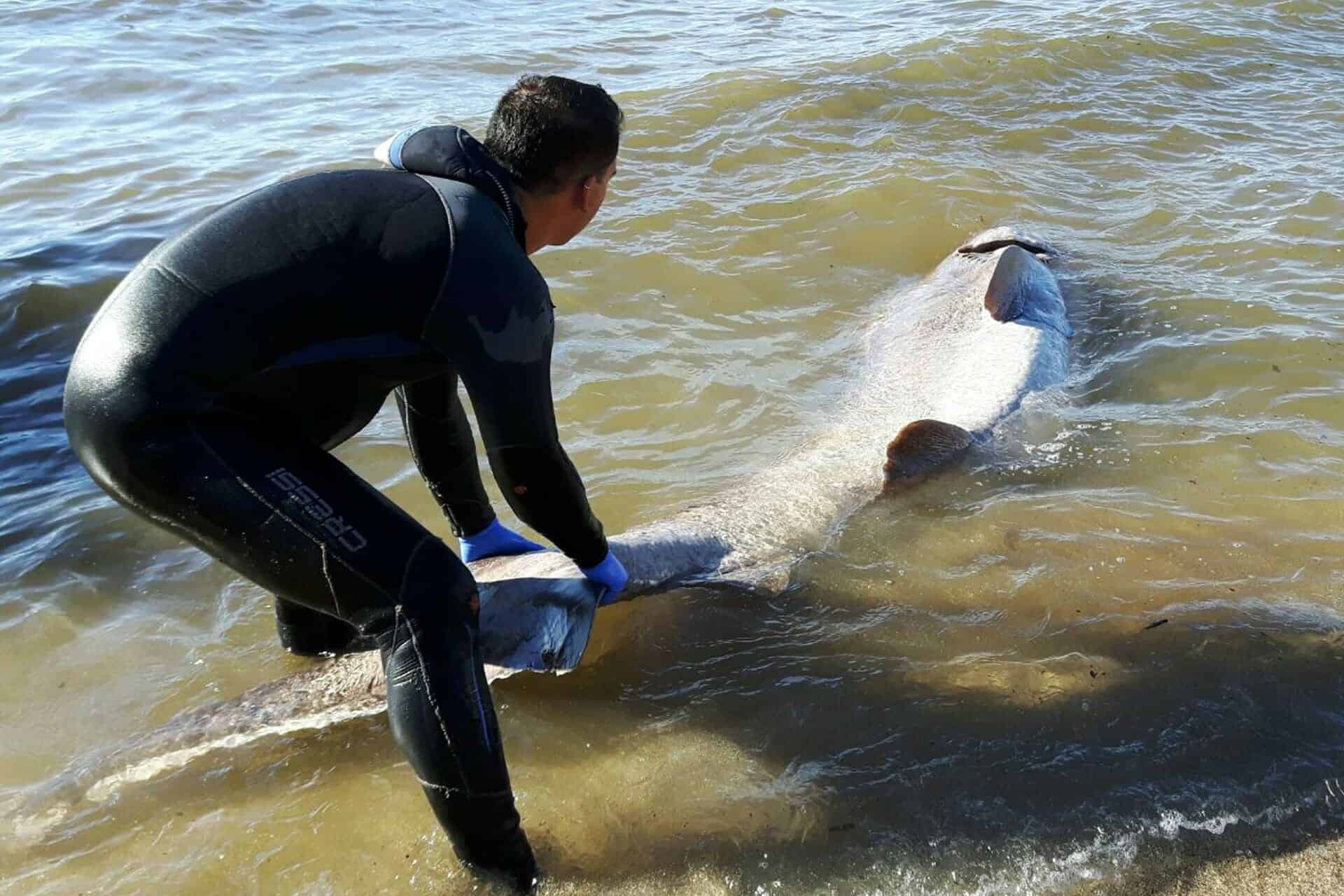The loggerhead sea turtle Caretta caretta is the most abundant species of sea turtle in the Mediterranean. It is included in the Spanish Catalogue of Endangered Species and belongs to an extensive wildlife recovery programme.
In recent years, there has been an increase in impacts affecting sea turtles. At the moment, the greatest threat to sea turtles is being catched with "ghost fishing" gear.
In recent years, there has been an increase in impacts affecting sea turtles. At the moment, the greatest threat to sea turtles is being catched with "ghost fishing" gear.


